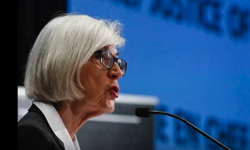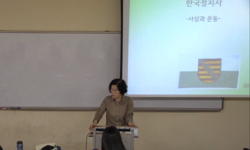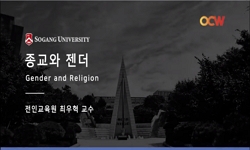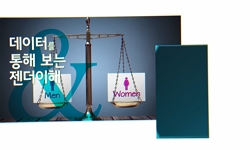Although gender conflict in Korean society is becoming more serious, as seen in the Gangnam Station murder case of 2016 when a 34-year-old man murdered a woman for no reason, it is hard to pinpoint its characteristics and origins. This study explores ...
http://chineseinput.net/에서 pinyin(병음)방식으로 중국어를 변환할 수 있습니다.
변환된 중국어를 복사하여 사용하시면 됩니다.
- 中文 을 입력하시려면 zhongwen을 입력하시고 space를누르시면됩니다.
- 北京 을 입력하시려면 beijing을 입력하시고 space를 누르시면 됩니다.
부가정보
다국어 초록 (Multilingual Abstract)
Although gender conflict in Korean society is becoming more serious, as seen in the Gangnam Station murder case of 2016 when a 34-year-old man murdered a woman for no reason, it is hard to pinpoint its characteristics and origins. This study explores gender conflict perception (GCP) in various types of social groups and identifies the determinants of GCP based on social identity theory (SIT). Specifically, the study focuses on the interaction between gender and political ideology to analyze how the two types of social identities interact. In particular, the study analyzes how socially constructed identities affect GCP. Additionally, by adding interaction terms to the regression model, the effects of various social identities are considered simultaneously in order to generate a full understanding of gender conflict. It is found that female respondents are more likely to think of gender conflict as a serious social issue if their political ideology is closer to liberalism. On the other hand, male respondents show the exact opposite results. Specifically, conservative male respondents tend to think of gender conflict in Korean society as serious.
참고문헌 (Reference)
1 권혁주, "한국의 사회갈등과 사회통합 방안: 사회구조적 관점에서" 한국행정연구소 54 (54): 93-116, 2016
2 서문기, "한국의 사회갈등 구조 연구-갈등해결 시스템을 모색하며-" 한국사회학회 38 (38): 195-218, 2004
3 Smeal, E., "Why and how women will elect the next president" Harper & Row 1984
4 Economist, "Why South Korea is worrying about the position of women" The Economist
5 Buvinic, M., "Violent conflict and gender inequality : An overview" World Bank 2013
6 Yoonmi Lee, "The work of women missionaries on Korean women’seducation during the colonial period" The Korean Society for History of Education 29 (29): 87-118, 2007
7 Huddy, L., "The social nature of political identity: Feminist image and feminist identity" 1998
8 Duckitt, J., "The psychological bases of ideology and prejudice : Testing a dual process model" 83 (83): 75-90, 2002
9 Miller, A., "The politics of the gender gap" Sage 258-282, 1988
10 Stryker, S., "The past, present, and future of an identity theory" 63 (63): 284-297, 2000
1 권혁주, "한국의 사회갈등과 사회통합 방안: 사회구조적 관점에서" 한국행정연구소 54 (54): 93-116, 2016
2 서문기, "한국의 사회갈등 구조 연구-갈등해결 시스템을 모색하며-" 한국사회학회 38 (38): 195-218, 2004
3 Smeal, E., "Why and how women will elect the next president" Harper & Row 1984
4 Economist, "Why South Korea is worrying about the position of women" The Economist
5 Buvinic, M., "Violent conflict and gender inequality : An overview" World Bank 2013
6 Yoonmi Lee, "The work of women missionaries on Korean women’seducation during the colonial period" The Korean Society for History of Education 29 (29): 87-118, 2007
7 Huddy, L., "The social nature of political identity: Feminist image and feminist identity" 1998
8 Duckitt, J., "The psychological bases of ideology and prejudice : Testing a dual process model" 83 (83): 75-90, 2002
9 Miller, A., "The politics of the gender gap" Sage 258-282, 1988
10 Stryker, S., "The past, present, and future of an identity theory" 63 (63): 284-297, 2000
11 Conover, P. J., "The origins and meaning of liberal/conservative self-identifications" 25 (25): 617-645, 1981
12 Rokeach, M., "The nature of human values" The Free Press 1973
13 Coser, L. A., "The functions of social conflict" The Free Press 1956
14 Jost, J. T., "The end of the end of ideology" 61 (61): 651-670, 2006
15 Kim, E., "The current trend of contemporary feminist theology and the identity of Korean Christian woman" 20 : 491-513, 2003
16 Lee, Y., "The consideration on reciprocal interrelation between awareness of the social conflict and of the multi-cultural society" 3 (3): 179-210, 2014
17 Byung-Ryang Lee, "The Study of Social Conflict Structure in Korea: Level, Cause and Alternative" Korean Association for Public Management 22 (22): 49-72, 2008
18 Mummendey, A., "Strategies to cope with negative social identity : Predictions by social identity theory and relative deprivation theory" 76 (76): 229-241, 1999
19 Abrams, D. E., "Social identity theory: Constructive and critical advances" Springer-Verlag Publishing 1990
20 Ashforth, B. E., "Social identity theory and the organization" 14 (14): 20-39, 1989
21 Sidanius, J., "Social dominance: An intergroup theory of social hierarchy and oppression" Cambridge University Press 2001
22 Brewer, M. B., "Self-evaluation effects of interpersonal versus intergroup social comparison" 66 (66): 268-275, 1994
23 Wilcox, C., "Racial and gender consciousness among African-American women : Sources and consequences" 17 (17): 73-94, 1996
24 Davis, L. E., "Race, gender, and class: Guidelines for practice with individuals, families, and groups" Prentice Hall 1989
25 Gurin, P., "Properties of gender identity and their implications for gender consciousness" 25 (25): 139-148, 1986
26 Jost, J. T., "Political ideology : Its structure, functions, and elective affinities" 60 : 307-337, 2009
27 Federico, C. M., "Political expertise and the use of ideology : Moderating effects of evaluative motivation" 71 (71): 221-252, 2007
28 Major, B., "Perceiving personal discrimination : The role of group status and legitimizing ideology" 82 (82): 269-282, 2002
29 Kwon, Y., "Marital conflict and children’s behavior problems" 20 (20): 115-133, 1999
30 Lavine, H., "Issues, party and character : The moderating role of ideological thinking on candidate evaluation" 37 : 139-163, 2004
31 White, J. W., "Influence tactics as a function of gender, insult, and goal" 18 (18): 433-448, 1988
32 Tajfel, H., "Individuals and groups in social psychology" 18 (18): 183-190, 1979
33 Sherif, M., "In common predicament: Social psychology of intergroup conflict and cooperation" Houghton Mifflin 1966
34 McLellan, D., "Ideology" University of Minnesota Press 1986
35 Caprioli, M., "Gendered conflict" 37 (37): 51-68, 2000
36 Campbell, R., "Gender, ideology and issue preference: Is there such a thing as a political women’s interest in Britain?" 6 (6): 20-44, 2004
37 Blumberg, R. L., "Gender, family and economy: The triple overlap" Sage 1991
38 Bouta, T., "Gender, conflict, and development" World Bank 2004
39 Melander, E., "Gender equality and intrastate armed conflict" 49 (49): 695-714, 2005
40 Gupta, M., "Gender bias in China, South Korea and India 1920–1990 : Effects of war, famine and fertility decline" 30 (30): 619-652, 1999
41 Piccinelli, M., "Gender and cross-cultural differences in somatic symptoms associated with emotional distress. An international study in primary care" 27 (27): 433-444, 1997
42 Huddy, L., "From social to political identity : A critical examination of social identity theory" 22 (22): 127-156, 2001
43 Dominelli, L., "Feminist social work" The MacMillan Press 2002
44 Chodorow, N., "Feminism and difference-gender, relation, and difference in psychoanalytic perspective" 9 (9): 51-70, 1979
45 Reingold, B., "Exploring the determinants of feminist consciousness in the United States" 19 (19): 19-48, 1998
46 Alvarez, S. E., "Engendering democracy in Brazil: Women’s movements in transition politics" Princeton University Press 1990
47 Lee, M., "Effects of perceived marital conflicts on children’s internalizing behavior problems" 19 (19): 727-745, 2000
48 Weber, M., "Economy and society : An outline of interpretive sociology" University of California Press 1978
49 Gidengil, E., "Economic man—social woman? The case of the gender gap in support for the Canada-United States Free Trade Agreement" 28 (28): 384-408, 1995
50 Bobbio, A., "Conservative ideology, economic conservatism, and causal attributions for poverty and wealth" 29 (29): 222-234, 2010
51 Yang, B., "Confucianism, socialism, and capitalism : A comparison of cultural ideologies and implied managerial philosophies and practices in the PR China" 22 (22): 165-178, 2012
52 Simmel, G., "Conflict: The web of group affiliation" The Free Press 1955
53 Dahrendorf, R., "Class and class conflict in industrial society (Vol. 15)" Stanford University Press 1959
54 Kano, A., "Backlash, fight back, and back-pedaling : Responses to state feminism in contemporary Japan" 8 (8): 41-62, 2011
55 Faludi, S., "Backlash : The undeclared war against American women" Vintage 1991
56 Duckitt, J., "Authoritarianism and group identification : A new view of an old construct" 10 (10): 63-84, 1989
57 Wormer, K., "Anti-feminist backlash and violence against women worldwide" 6 (6): 324-337, 2008
58 Erikson, R. S., "American public opinion : Its origins, content and impact" Macmillan 1988
59 Busby, N., "Affirmative action in women’s employment : Lessons from Canada" 33 (33): 42-58, 2006
60 Hogg, M. A., "A tale of two theories : A critical comparison of identity theory with social identity theory" 58 (58): 255-269, 1995
61 Choi, K., "A study on types of family systems, marital conflicts and coping strategies" 12 (12): 140-152, 1994
동일학술지(권/호) 다른 논문
-
Gender Conflict Perception and Social Identities: In the Context of Backlash Phenomenon
- 숙명여자대학교 아시아여성연구원
- Sabinne Lee
- 2019
- KCI등재,SSCI,SCOPUS
-
Why Are Women Less Likely to Be Nationalistic in Taiwan?
- 숙명여자대학교 아시아여성연구원
- Wan-Ying Yang
- 2019
- KCI등재,SSCI,SCOPUS
-
Chinese Indonesian Women in Local Politics: The Political Rise of Tjhai Chui Mie in Singkawang
- 숙명여자대학교 아시아여성연구원
- Kurniawati Hastuti Dewi
- 2019
- KCI등재,SSCI,SCOPUS
-
Korean Male Farmers’ Patriarchal Perception: A Case Study of Apo Diary (1969-2000)
- 숙명여자대학교 아시아여성연구원
- Myong-suk Jin
- 2019
- KCI등재,SSCI,SCOPUS
분석정보
인용정보 인용지수 설명보기
학술지 이력
| 연월일 | 이력구분 | 이력상세 | 등재구분 |
|---|---|---|---|
| 2023 | 평가예정 | 해외DB학술지평가 신청대상 (해외등재 학술지 평가) | |
| 2020-01-01 | 평가 | 등재학술지 유지 (해외등재 학술지 평가) |  |
| 2017-07-06 | 학회명변경 | 한글명 : 아시아여성연구소 -> 아시아여성연구원 |  |
| 2011-01-01 | 평가 | 등재학술지 유지 (등재유지) |  |
| 2009-01-01 | 평가 | 등재학술지 유지 (등재유지) |  |
| 2007-01-01 | 평가 | 등재학술지 유지 (등재유지) |  |
| 2004-01-01 | 평가 | 등재학술지 선정 (등재후보2차) |  |
| 2003-01-01 | 평가 | 등재후보 1차 PASS (등재후보1차) |  |
| 2001-07-01 | 평가 | 등재후보학술지 선정 (신규평가) |  |
학술지 인용정보
| 기준연도 | WOS-KCI 통합IF(2년) | KCIF(2년) | KCIF(3년) |
|---|---|---|---|
| 2016 | 0.13 | 0.1 | 0.1 |
| KCIF(4년) | KCIF(5년) | 중심성지수(3년) | 즉시성지수 |
| 0.08 | 0.09 | 0.321 | 0.05 |






 KCI
KCI






